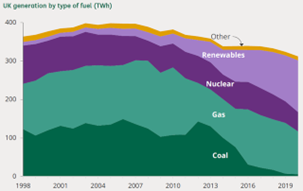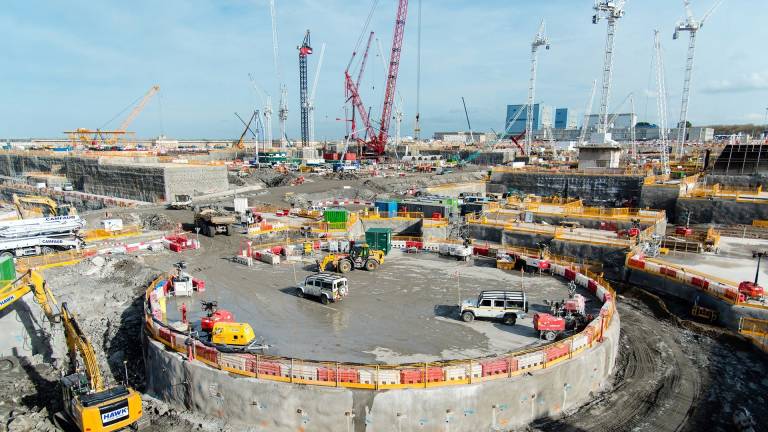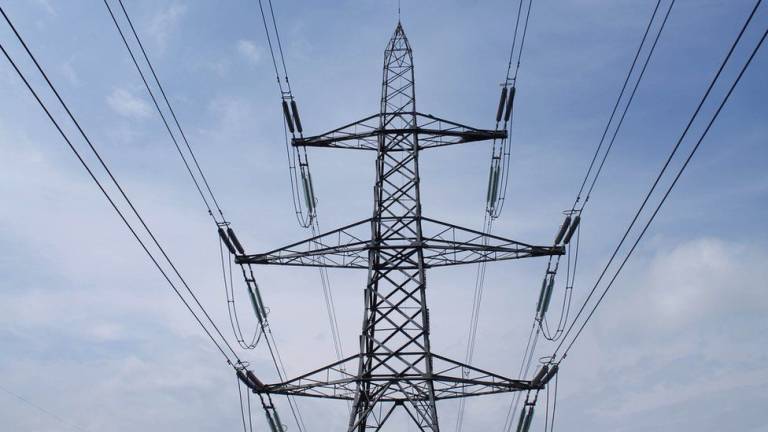Published: 10th July 2024
The election of a new government may herald a much-needed reset in Britain's approach to major infrastructure projects. If a step change materialises, the engineering contracting community in the UK will welcome it.
The political context matters, but the presence of a fresh set of faces around the cabinet table does not alter the enormity of the challenge presented by the energy transformation. Achieving Net Zero by 2050 is still seen by many as a big stretch. The new government's ambition to contribute to this global goal by decarbonising the UK's energy system by 2030 has been variously described as "undeliverable" and "ludicrous". Nonetheless, I've been around long enough to remember the naysayers at the start of the millennium who dismissed the possibility of renewables ever making any meaningful contribution to the UK energy mix. When last in office between 1997 and 2010, The Labour Party did much to change this mindset, not least through the novel mechanism of legally binding carbon budgets introduced as a central component of the Climate Change Act 2008.
Growth in renewables

Since then, renewables have grown sixfold, displacing nearly half of electricity generation from natural gas-fired power plants and almost all from coal. In 2023 renewables provided approaching 50% of the nation's electricity. Displacing the other half in less than six years, as set out in the Labour manifesto, will take some doing, yet the vision is bold. The new government is committed to working with the private sector to double onshore wind, triple solar power and quadruple offshore wind by 2030. They have also pledged to invest in carbon capture and storage (CCS), hydrogen, marine energy and to ensure that we have the long-term energy storage capacity needed to balance the variable supply of electricity from renewable sources.
New nuclear

Nuclear power also features strongly in Labour's energy transformation thinking. Manifesto pledges include ensuring the sector's long-term security, extending the lifetime of some existing plants, and completing the delayed Hinkley Point C project in Somerset. Sizewell C in Suffolk also remains a live proposition, along with more rapid progress on the roll-out of Small Modular Reactors.
Gridlock unlocked

The new government has also identified the national grid as the single biggest obstacle to the deployment of cheap, clean power generation and the electrification of industry. With grid connection dates not offered until the late 2030s, important business and infrastructure investment is being stalled or lost overseas. Labour has pledged to work with industry to upgrade the nation's transmission infrastructure.
Lively start for Reeves

In the face of fears that any rapid attempt to accelerate the energy transformation might quickly be derailed by supply chain, labour force and legislative obstacles – concerns shared by BCECA – it has been heartening to see that the new government has hit the ground running. Yesterday, on what was her first working day in the office, the new Chancellor of the Exchequer, Rachael Reeves, offered a slew of announcements with the intention of signalling that the new government fully intends to take the urgent steps needed to deliver the infrastructure that the UK needs.
Ms Reeves immediately reversed what she described as an "absurd ban" on new onshore wind projects in England. She said she would press for such projects to be brought back within the remit of a revised National Significant Infrastructure Projects regime. Ms Reeves also indicated that energy infrastructure projects would be given priority in the planning system, and the Spatial Plan for Energy, which enables the UK's proposed Hydrogen and CCS clusters, will be expanded to other infrastructure sectors. In addition, she said that the new Secretary of State for Energy and Net Zero, Ed Miliband, would be asked to prioritise projects that had been "stuck in the system for far too long".
Finally, she touched on an issue that has been a constant blocker to the execution of energy transformation projects in the UK – investment certainty. Ms Reeves restated Labour's much-trailed proposals to unlock private capital via a new National Wealth Fund, with a remit to invest – and so to leverage private sector investment – in new and growing industries, potentially including the hydrogen clusters, in four different locations around the UK.
Conference to assess progress

It is easy to be cynical about politicians' promises. Still, the initial signs are promising, and BCECA, like much of British business, is minded to give the new government the benefit of the doubt—for now. By the autumn, we hope to see much more clarity on the details behind these early commitments. The developments will provide the backdrop to our fourth virtual annual conference on Wednesday, 2 October 2024.
BCECA won't be taking a party-political line, of course. Nonetheless, given the potential significance of the policy changes, we feel that it's important to have a political voice in the room. Professional engineers are a rare sight in parliament, but we are pleased to confirm that the Independent Cross Bench Peer, Lord Ravensdale – better known in construction circles as Atkins Realis Principal Engineer Daniel Mosely - will get The Engineering Transformation – Making It a Reality II, underway with an inside take on the policy machinations in Westminster and the likely implications for the contracting sector.
The programme will then move on to a more detailed examination of some practical challenges confronting the engineering contracting community, ultimately tasked with getting spades in the ground and delivering the infrastructure needed to make the energy transformation happen. Delegates will hear the latest thinking from a range of BCECA member companies, and there will be plenty of opportunities for discussion.
Register today

There is no charge for registration, but with attendance limited to just 400 participants, we recommend registering your interest in our fourth Annual Conference this side of the summer holidays. The conference findings will be presented to an audience of decision-makers and senior stakeholders at a reception in Westminster on Tuesday, November 12, 2024. Delegates will be invited to attend.
BCECA's fourth virtual annual conference opens at 09:30 GMT on Wednesday 2 October 2024. For further programme information and registration, visit:
https://bit.ly/bceca04register

